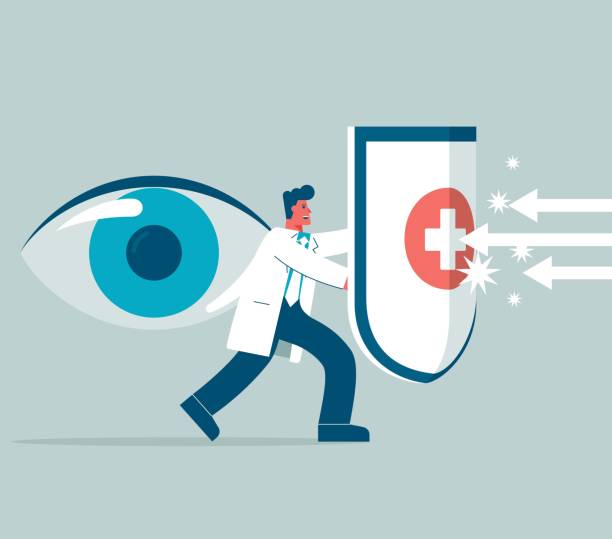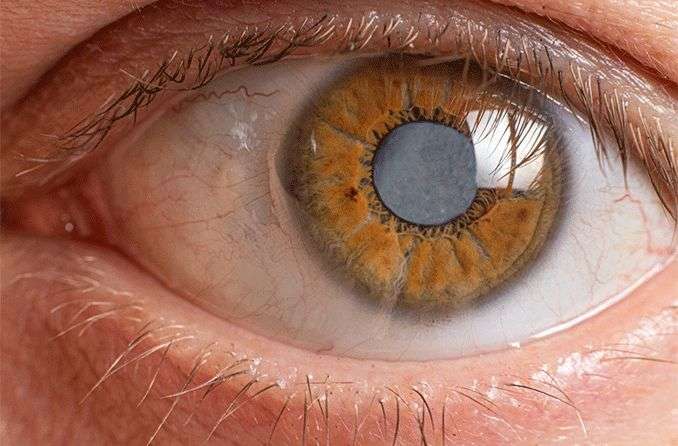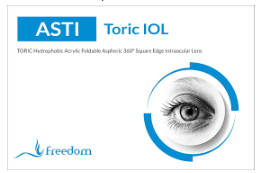Eye health insurance can be a valuable investment for anyone who is considering eye surgery or who wants to maintain good eye health. There are several types of insurance plans available, each with its own benefits and drawbacks. In this guide, we will explore the different types of eye health insurance and help you choose the plan that is best suited for your needs.
Choosing the right eye health insurance plan is an important decision that can impact your eye health and your finances. It is important to carefully review your options and choose a plan that meets your needs and budget. By taking the time to research and compare different plans, you can find the right insurance plan for your specific situation.
What is eye health insurance?
Eye health insurance is a type of insurance that covers various eye-related medical treatments and procedures, including routine eye exams, eyeglasses, contact lenses, surgeries, treatments for eye diseases, and emergency eye care. Different types of eye health insurance plans are available, including vision insurance, medical insurance, health savings accounts or flexible spending accounts, and discount plans. The purpose of eye health insurance is to help individuals maintain good eye health and manage the costs associated with eye-related medical care.
The different types of eye health insurance:
There are several types of eye health insurance plans available, including:
- Vision Insurance: This type of insurance covers routine eye exams, eyeglasses, and contact lenses. It may also offer discounts on other eye-related services and products. However, it typically does not cover medical treatments such as surgeries or treatments for eye diseases.
- Medical Insurance: Medical insurance covers a wide range of eye-related medical treatments, including surgeries, treatments for eye diseases, and emergency eye care. It can be obtained through an employer, government program, or purchased on your own.
- Health Savings Account (HSA) or Flexible Spending Account (FSA): These are savings accounts that can be used to pay for medical expenses, including eye-related treatments and procedures. They are typically offered by employers and can be used to pay for expenses that are not covered by insurance.
- Discount Plans: These plans are not insurance plans but offer discounts on eye-related treatments and procedures. They require a membership fee and may offer discounts on eye exams, glasses, contact lenses, and even some surgical procedures.
It’s important to carefully review the terms and conditions of each type of eye health insurance plan to determine which plan is best suited to your needs and budget.
Why are these different types of eye health insurance important to people?
These different types of eye health insurance plans are important to people because they can help individuals manage the costs associated with maintaining good eye health and receiving necessary eye-related medical treatments and procedures. Eye health insurance can provide financial protection and peace of mind in the event of unexpected eye-related medical expenses.
Vision insurance is important for individuals who require regular eye exams, wear glasses or contact lenses, or may need periodic updates to their prescriptions. Medical insurance is important for individuals who may require more extensive eye-related medical treatments, such as surgeries, treatments for eye diseases, or emergency eye care.
Why is eye health insurance important?
Eye health insurance is important for several reasons:
- Eye exams are an important part of maintaining overall health: Regular eye exams can detect early signs of eye diseases such as glaucoma, cataracts, and macular degeneration, as well as systemic health conditions such as diabetes and high blood pressure.
- Eye care can be expensive: Eye care services such as eye exams, prescription glasses, contact lenses, and corrective surgeries can be expensive without insurance. Eye health insurance can help reduce the cost of these services and make them more affordable.
- Eye injuries and emergencies can happen: Accidents and emergencies can happen at any time, and eye injuries can be particularly costly to treat. Eye health insurance can help cover the cost of emergency care and treatment for injuries.
- Vision loss can impact the quality of life: Poor vision can make it difficult to perform daily activities such as reading, driving, and working. Eye health insurance can help ensure that individuals receive the necessary care to preserve their vision and maintain their quality of life.
In summary, eye health insurance is important for maintaining overall health, reducing the cost of eye care services, covering emergency care and treatment for injuries, and preserving vision and quality of life.
Who needs eye health insurance?
Anyone who wants to protect their vision and maintain their overall health should consider getting eye health insurance. However, there are certain groups of people who may have a higher risk of developing eye conditions and may particularly benefit from having eye health insurance:
- Seniors: As people age, their risk of developing eye diseases such as cataracts, glaucoma, and macular degeneration increases. Seniors may benefit from having eye health insurance to help cover the cost of regular eye exams and treatment for these conditions.
- Children: Children may need regular eye exams to detect and correct vision problems that could affect their learning and development. Eye health insurance can help cover the cost of these exams and any necessary corrective treatments.
- Contact lens wearers: People who wear contact lenses may require more frequent eye exams and may be at a higher risk for eye infections or injuries. Eye health insurance can help cover the cost of these exams and any necessary treatments.
- People with chronic health conditions: People with chronic health conditions such as diabetes or high blood pressure are at a higher risk for developing eye diseases. Eye health insurance can help cover the cost of regular eye exams and treatment for these conditions.
- People with a family history of eye diseases: People with a family history of eye diseases may be at a higher risk for developing these conditions themselves. Eye health insurance can help cover the cost of regular eye exams and early detection of these conditions.
In summary, anyone who wants to protect their vision and maintain their overall health can benefit from having eye health insurance. Still, certain groups of people may have a higher risk of developing eye conditions and may particularly benefit from having this type of insurance.
How does eye health insurance work?
Eye health insurance typically works in a similar way to other types of health insurance. Here are some of the key features of how an eye health insurance policy typically works:
- Premiums: The insured person pays a monthly or annual premium to the insurance company in exchange for coverage.
- Covered services: The insurance policy outlines what services are covered and to what extent. This may include routine eye exams, prescription glasses, contact lenses, and certain eye surgeries. The policy may also specify any deductibles or co-payments that the insured person is responsible for paying.
- Network providers: Eye health insurance plans may have a network of providers, such as optometrists and ophthalmologists, that the insured person can choose from to receive covered services. Typically, using an in-network provider will result in lower out-of-pocket costs for the insured person.
- Claims: When the insured person receives a covered service, they or their provider will submit a claim to the insurance company for reimbursement. The insurance company will review the claim and determine if it is covered under the policy. If the claim is approved, the insurance company will pay the provider directly or reimburse the insured person for any out-of-pocket expenses.
- Exclusions and limitations: Eye health insurance policies may have exclusions or limitations, such as coverage for certain types of eyewear or services that are not medically necessary.
In summary, eye health insurance works by the insured person paying premiums for coverage of certain eye-related services. The insurance policy outlines what services are covered, the network of providers available, any deductibles or co-payments required, and how claims are handled.
Should I get insurance for my eyes?
There are several factors that you may want to consider when deciding whether to get this type of insurance:
- Your age: As people age, their risk of developing certain eye diseases increases. If you are older, you may want to consider getting eye health insurance to help cover the cost of regular eye exams and treatment for any conditions that may develop.
- Your overall health: If you have a chronic health condition such as diabetes or high blood pressure, you may be at a higher risk for developing eye diseases. Eye health insurance can help cover the cost of regular eye exams and early detection of these conditions.
- Your lifestyle: If you wear contact lenses or play sports, you may be at a higher risk for eye injuries or infections. Eye health insurance can help cover the cost of emergency care and treatment for these types of situations.
- Your budget: Eye care services can be expensive, and eye health insurance can help make them more affordable. However, you will need to consider whether the cost of the insurance premiums is worth the potential cost savings on eye care services.
- Your employer’s benefits: If you have access to an employer-sponsored health insurance plan, you may already have coverage for eye care services. You will need to review the details of your plan to determine if eye care services are covered and to what extent.
In summary, whether or not you should get eye health insurance will depend on your individual circumstances, including your age, overall health, lifestyle, budget, and employer benefits. You may want to consult with an insurance agent or healthcare professional to help you make an informed decision.
Top health insurance companies:
There are many health insurance companies in India that offer a range of plans and coverage options. Here are some of the top health insurance companies in India:
- Apollo Munich Health Insurance Company Limited
- Max Bupa Health Insurance Company Limited
- ICICI Lombard General Insurance Company Limited
- HDFC ERGO Health Insurance Limited
- Star Health and Allied Insurance Company Limited
- Bajaj Allianz General Insurance Company Limited
- Religare Health Insurance Company Limited
- Oriental Insurance Company Limited
- National Insurance Company Limited
- United India Insurance Company Limited
It’s important to note that the best health insurance company for you will depend on your specific needs and budget. Before selecting a health insurance company, compare the coverage and benefits offered by different plans, check customer reviews, and consider the company’s claim settlement ratio and reputation in the market.
What’s the best way to compare and choose a good insurance company?
Choosing a good insurance company can be a daunting task, but here are some steps you can take to compare and select the right one for you:
- Determine your insurance needs: First, determine what type of insurance you need and how much coverage you require. For example, if you’re looking for health insurance, consider what benefits you need, such as doctor visits, prescription drugs, and hospitalization coverage.
- Research insurance companies: Do your research to identify insurance companies that offer the type of insurance you need. Check their websites, read reviews, and ask for recommendations from friends and family.
- Check the company’s financial strength: Check the company’s financial strength rating from reputable rating agencies such as A.M. Best, Moody’s, or Standard & Poor’s. This rating indicates the company’s ability to pay claims.
- Check the company’s customer service: Check the company’s customer service ratings and reviews to see how they treat their policyholders. Consider calling the company or chatting with their customer service representatives to get a sense of their responsiveness and helpfulness.
- Compare prices and coverage: Once you’ve narrowed down your list of insurance companies, compare their prices and coverage options. Make sure you’re comparing apples to apples by looking at the same coverage limits and deductibles.
- Evaluate the claims process: Consider how the insurance company handles claims. Do they have an efficient claims process? Are their claims adjusters helpful and easy to work with?
- Review the policy terms and conditions: Finally, review the policy terms and conditions carefully before signing up. Make sure you understand what’s covered, what’s excluded, and any deductibles or co-payments that apply.
By following these steps, you can compare and select a good insurance company that meets your needs and offers reliable coverage.
What makes Vijaya Nethralaya Eye hospital the first choice for eye health insurance for eye surgery?
At Vijaya Nethralaya Eye Hospital, we understand that your eyes are important to you. That’s why we offer comprehensive eye health insurance for eye surgery. We provide a variety of services to our patients, including pre-and post-operative care, to ensure that you receive the best possible care. We accept all major insurance plans, and we offer a discount for cash payments. Contact us today to learn more about our eye health insurance options.
Conclusion:
In conclusion, by insuring your eyesight you are taking proactive steps to protect your vision into the future. Wearing contacts or glasses is crucial for many people, but the costs of eye surgery can be prohibitively expensive without insurance. Eye care insurance exists to help people pay for these costly procedures, so make sure you get coverage as soon as possible.













